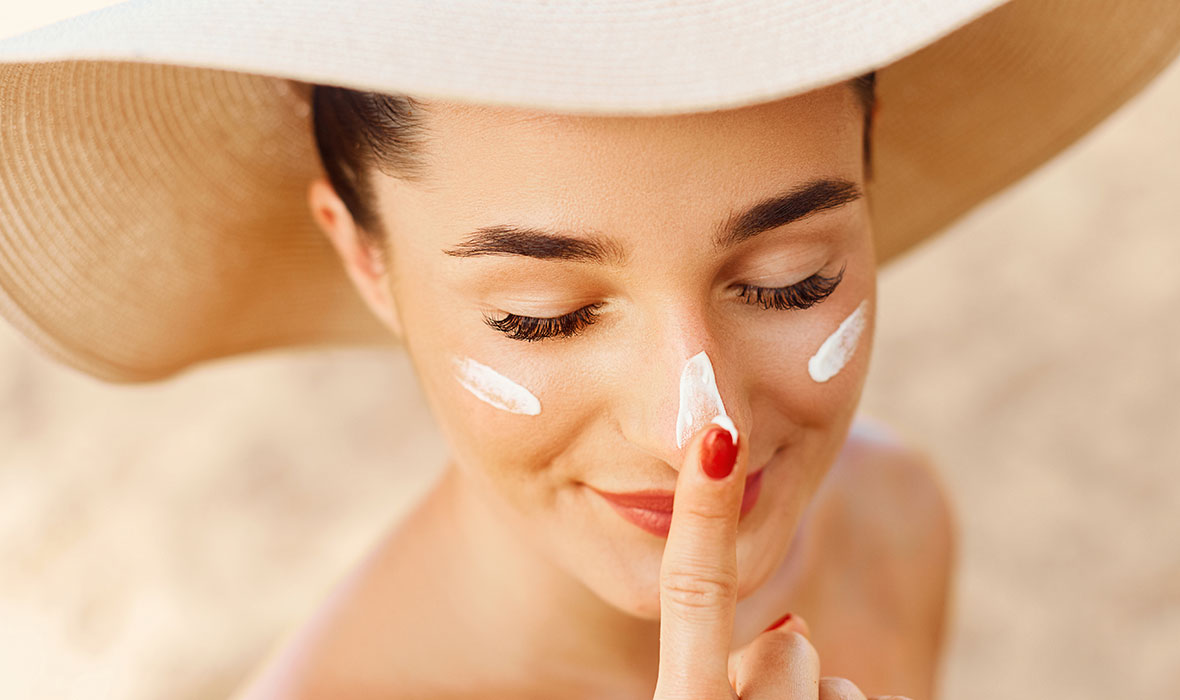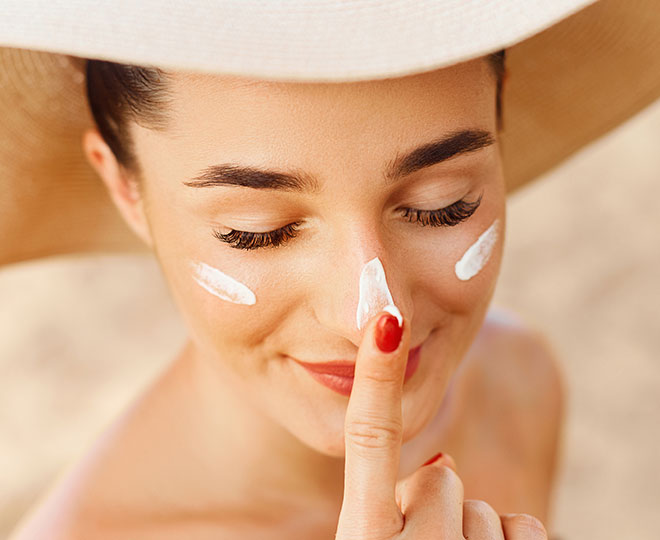It’s easy to assume that sunscreen clogs your pores and leads to more breakouts. After all, some sunscreen products can have a heavy and greasy texture. But not all sunscreens are the same! There are different types of products best suited to different purposes.
To help you find a bottle of sunscreen that is safe for acne-prone skin, ahead, we take a deep dive into what sunscreen ingredients to look out for, which sun protection factor your product should have, and why it’s important to always reapply your SPF product.
But first, let’s discuss the two types of sunscreen you’ll encounter, shall we?
Types of sunscreen
Sunscreen for acne-prone skin does exist. However, to help you find the perfect product, it’s helpful to be mindful of the two types of sunscreen you’ll encounter in the market — physical and chemical. These sunscreens filter out harmful UVA/UVB rays differently, and also contain different ingredients that can be beneficial to different skin types.
For starters, physical sunscreen is a type of sunscreen that sits on the top of the skin and helps block the sun’s harmful rays. Mineral and titanium sunscreens are common physical sunscreens you’ll encounter.
Chemical sunscreens work differently to physical sunscreens. These products shield the skin from sun damage by absorbing into the skin and converting UV rays to heat, which are then released from the body. Common ingredients used in chemical sunscreens are octinoxate and oxybenzone.
What is SPF and why is it important
No matter what sunscreen you choose, you’ll always want to be mindful of the sun protective factor (SPF) in your product. What is SPF? SPF measures how much sun protection your product has. The higher the SPF, the greater the sun protection, so it’s best to always try use a product with a broad spectrum SPF30 and higher.
And should you reapply your sunscreen throughout the day? Absolutely. Failure to do so every two hours only ups your risk for sun damage.
Wearing sunscreen with acne
Like a good moisturizer, there’s no denying that sunscreen is one of those essential skincare products that should be a part of any skin care routine. Why? These products can help protect the skin from sunburn and damage, which can appear in the form of scarring and dark marks.
At the same time, if you’re still questioning whether sunscreen can cause acne, the answer is… sometimes! Your best bet is to ditch anything that is too greasy or comedogenic. Acne-prone skin types should always look for a product that is labeled oil-free and non-comedogenic.
What’s the right sunscreen for acne-prone skin
Other than choosing an oil-free and non-comedogenic product, try to stick with sunscreens suited for facial use only, and leave the body products for the rest of your body.
Thankfully, the Proactiv Clear Skin SPF 30 is a great example of a sunscreen that keeps your skin protected from sun damage without clogging the pores, as it is lightweight, oil-free, and provides protection against UVA/UVB rays. Plus, this product also has the right amount of sun protective factor and moisturizing ingredients — namely glycerin — to keep dryness at bay.
Wrap-up
Because sunscreens can have thick and heavy texture, oily and acne-prone skin types will want to choose sunscreen products carefully. Non-comedogenic sunscreens are usually a good product choice, as they provide protection from sun damage and can be oil-free, meaning they won’t clog the pores. Just don’t forget to reapply your sunscreen every two hours to keep your skin protected.






